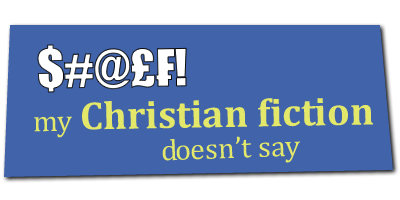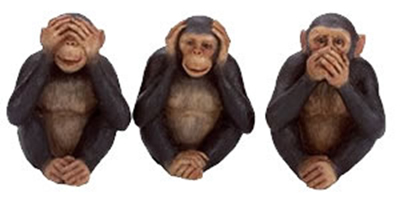$#@£₣! My Christian Fiction Doesn’t Say, Part 2
 So since last my last column, a film I haven’t seen yet (but want to, because all my cool friends think it was great) called The King’s Speech won Oscar awards, including for best 2010 film. It is now the subject of some controversy, for similar reasons to those discussed last week:
So since last my last column, a film I haven’t seen yet (but want to, because all my cool friends think it was great) called The King’s Speech won Oscar awards, including for best 2010 film. It is now the subject of some controversy, for similar reasons to those discussed last week:
Is a culture-designated Bad Word always bad, even if it’s used in Fictitious Cussing?
Apparently the film’s producers would like to market the film to a wider audience, so they have cut out several Bad Words. Yet I understand that in the film, a speech trainer, trying to help the king get past a stutter, taught him to say those words, not angrily, but for practice.
So do they still constitute Bad Words? Evidently the MPAA thought so, thus giving The King’s Speech an R rating; without the words it would likely be PG-13.
On this website, the presumably non-Christian writer of course doesn’t see the big deal. To him it’s all about freedom. And as an American I can understand that; however, as a Christian, I know that the Lord places a higher value on love for others than on personal freedoms I might otherwise exercise.
For example, in 1 Corinthians 10, when Paul begins to end his discussion about whether Christians have the freedom to eat meat that’s been offered to idols elsewhere:
[Quoting a then-popular slogan] “All things are lawful,” but not all things are helpful. “All things are lawful,” but not all things build up. Let no one seek his own good, but the good of his neighbor.
— 1 Corinthians 10: 23-24
So that cinches it: even if technically you should be able to use a Bad Word, even only in fiction, you ought not to, if it won’t benefit your neighbor. … Or not? Because Paul goes on and immediately says:
Eat whatever is sold in the meat market without raising any question on the ground of conscience. For “the earth is the Lord’s, and the fullness thereof.”
— 1 Corinthians 10: 25-26
Confusing? Perhaps, but mainly complex — possibly because people are so complex.
Last week’s discussion included several aspects of the issue, such as the claim that “if you cuss, you’re not a Christian,” “Christian fiction is lame if authors can’t repeat bad words,” and even “why can’t we simply compromise and use substitute words or paraphrases”?
Now comes some of the harder stuff, in which I’ll attempt to present some more arguments for and against Fictitious Cussing — not anger-induced cussing in real life. Also: relevant Scriptures, my own observations and questions, some even rhetorical.
Next week I’ll conclude. I can’t offer a decision, though; I’m still sorting this one out. Thus, any thoughts are most welcome.
Against: ‘Why do we need the cussing?’
That question seems to have a false premise — that someone asking why Christians must ban Cusswords is also claiming he “needs” them. Unfortunately the question could also carry a self-righteous implication: I don’t “need” to watch this movie; why do you, hmm?
Legalists use this line. The New Testament never does. Its writers constantly ask whether a particular action or practice will bring glory to God.
Paul says this very thing, applying to “whatever you do” (1 Cor. 10:31). Yet he qualifies this one verse later (10:32) with a command to do whatever you can not to offend religious Jews or pagan Greeks or the Christian capital-c Church. That’s quite a tall order!
So the question is not one of whether a reader needs Fictitious Cussing, but simply: why do we act as though Fictitious Cussing is the top sin to be banned from our books?
- Could it be that in our hope not to offend some in the Church, Christians may offend pagans — who see a hideous world but only whitewashed versions of it in our fiction?
- Could it be that many Christians in their novels and art have inadvertently acted as if the Gospel only seems to work in a pre-cleaned world?
- If so, which “side” is really “offended” in a way contradicting what Paul encourages?
 Thus, is it right or respectful, or even consistent, for Christian publishers to ban all use of Cusswords? Does that impose what could be a personal conviction on all its writers and readers, who may have different emphases: marketing to the Church, or to pagan “Greeks”?
Thus, is it right or respectful, or even consistent, for Christian publishers to ban all use of Cusswords? Does that impose what could be a personal conviction on all its writers and readers, who may have different emphases: marketing to the Church, or to pagan “Greeks”?
I also must maintain that even if Fictitious Cussing is a genuine sin, Christians who act as if it’s the greatest sin leave the doors wide open for in-fiction descriptions of other sins, especially emotional lust. Many Christian romances are notorious for exploiting such loopholes, avoiding overt sex scenes but also reveling in lustful interactions, emotional and physical, which in effect becomes porn for women — to the point where many women I know have shunned these novels to avoid temptations!
Unlike intense descriptions of violence — which the Bible does contain — or even details about false beliefs contrasted with truth, emotional-porn almost invariably tempts a person to indulge in the same sins. And for all the focus on possible gnats of Bad Words, some publishers swallow the camel of out-of-context, never-rebutted-for-the-sin-that-it-would-be emotional pornography.
Sin can always find a loophole, always seep in — despite our rules, man-made or otherwise.
For: ‘Cussing helps show the evil in our world.’
Conversely, I can understand a why-do-we-need-it question being asked honestly, without self-righteousness. I asked it myself two weeks ago, with the reminder that a good novel or film need not include Cusswords (or a lot of Cusswords) to echo accurately the grittiness of evil.
Consider not just The Lord of the Rings, as Becky pointed out, but one of the grittiest films of the last decade, which shows evil for what it is and yet doesn’t require inordinate amounts of Bad Words to do so: The Dark Knight. Does the Joker swear? He doesn’t need to. He shows, not tells. And the story shows, with Bad Language when necessary, the reality of evil and the need to fight it.
Even the violence of The Dark Knight is surprisingly non-graphic. [Director] Christopher Nolan is a genius at not showing his audiences something, instead letting them infer it, and thus engaging the imagination more and making something even more potent by paradoxically not showing as much as he could have. Example: the Joker slitting someone’s throat, in which nothing is shown, but the buildup, tension, and portrayed aftereffect come off as just as intense as if an action was actually shown. This is also why older horror films are often much scarier and more intense than newer slash-and-show-all-of-it-in-3D movies. A less-is-more principle.

Still this depends on a genre. Though The Dark Knight contained no gratuitous swearing, the cusswords were there, because that’s how police officers and especially villains would speak. If you a publisher decide to ban all cusswords, just in case, that does seem to limit where an author can set a novel and whether he can make the situation seem authentic.
Thus, sci-fi or fantasy worlds with made-up languages, including “bad words”: okay.
Contemporary fiction set in a contemporary church environment, showing sins like hypocrisy and even the effects of adultery: okay.
Urban fantasy set in the inner city, involving a street preacher and “zombies” resulting from humans rejecting the Gospel and glorying in their depravity (free idea!): okay, but only if you leave out even non-theological uses of “hell” and “damn” and only say “he swore,” if that.
So I’m not sure I favor supporting a Christian publisher drawing a line for all Christians that Scripture itself doesn’t specifically draw for all Christians.
Next week: more on the conscience issues I mentioned above, which I must delay until next week to address them fully. Yet my guess is that others will start that discussion below.










































[…] Part 2: Why do we need the cussing? vs. Cussing helps show the evil in our world. […]